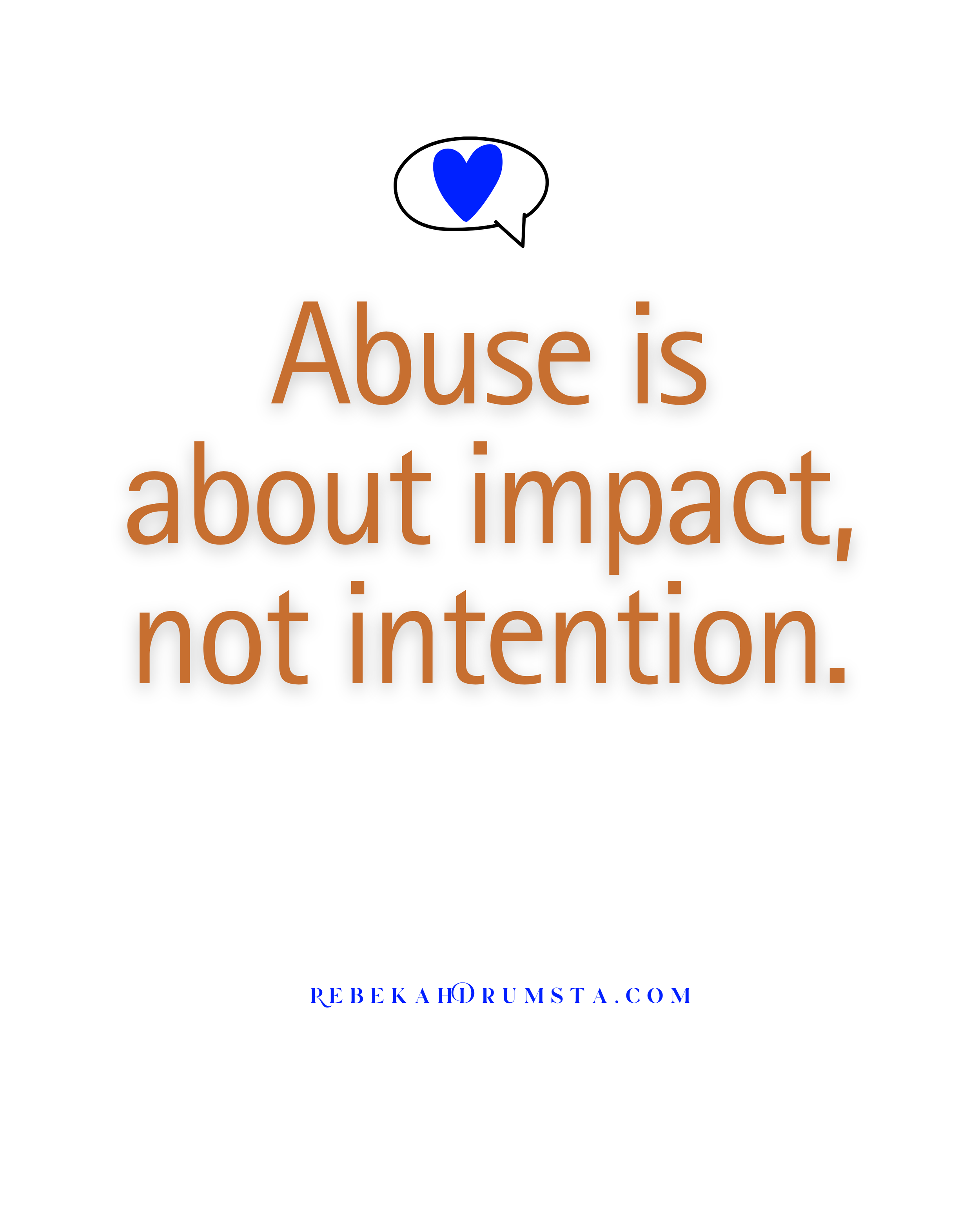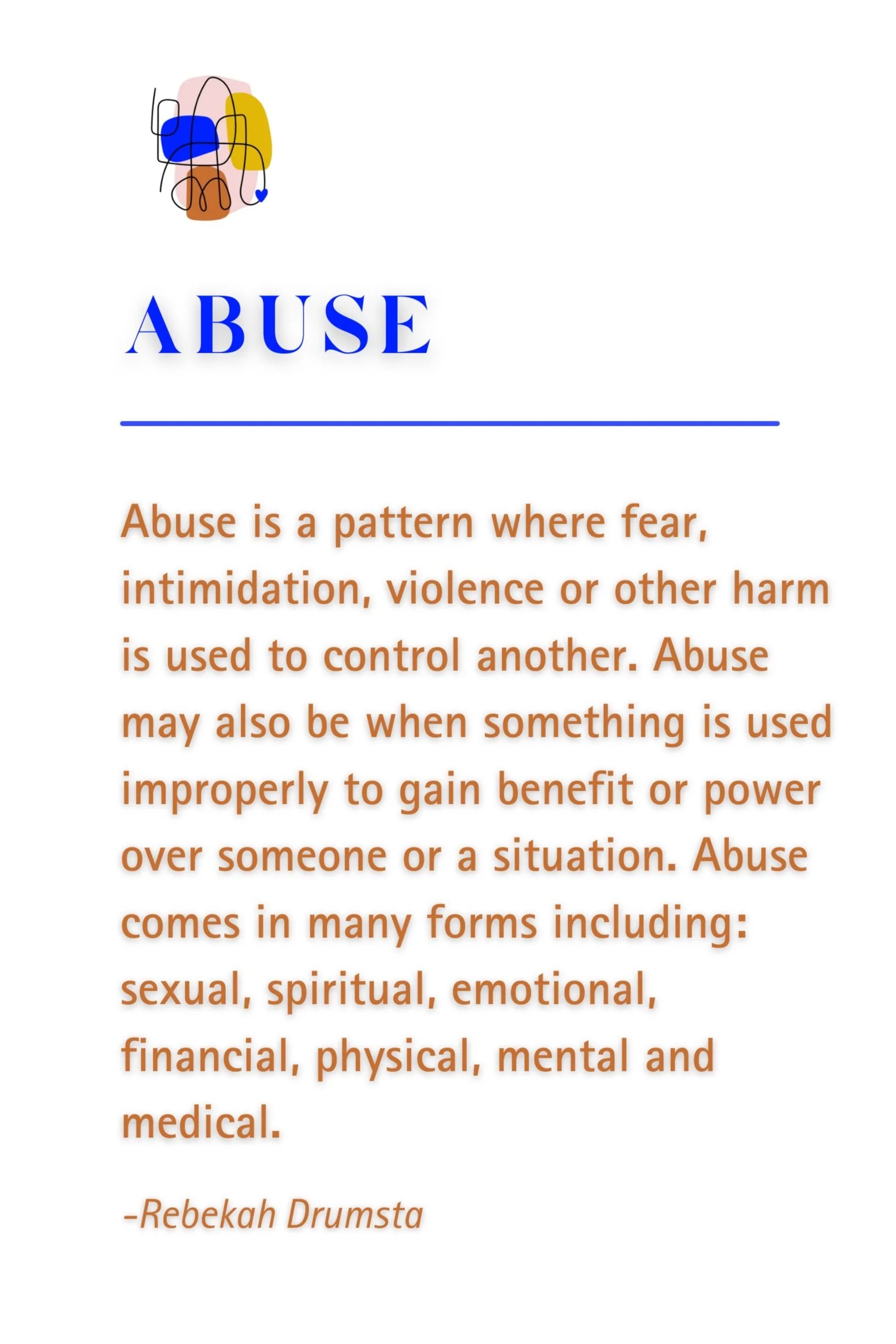You Don’t Get to Say It Wasn’t Abuse
For so long, I sat quietly in places that were supposed to be safe—church pews, fellowship halls, Sunday school classrooms, homeschool conferences, my own home—listening to the voices of authority tell me what was right, what was real and what wasn’t. They told me what counted as sin, what counted as discipline, and what counted as good and holy. I embodied what I was taught, absorbing every doctrine, belief and theory. And when I grew up and said, “I was hurt,” the answer was often, “No, that wasn’t abuse.”
If you’ve lived through religious trauma or escaped a cult-like environment, you know this story all too well. The subtle, and sometimes not-so-subtle, message that your pain isn’t valid. That your experience doesn’t fit their definition. That your feelings are exaggerated, misunderstood, or just plain wrong. You’ve strayed from the faith, are rebellious or Satan is using you. But here’s the truth—and what I want you to hold onto too: You don’t get to say it wasn’t abuse.
Abuse isn’t a checklist someone else gets to tick off. It’s not about whether the bruises are visible or if the words were spoken loudly enough. Abuse is about harm. It’s about the ways control, manipulation, shame, and fear are used to break down a person’s sense of self, safety and autonomy. In religious spaces, abuse often wears a disguise—dressed up in spiritual language, cloaked in “accountability,” or justified as “God’s discipline” and “Biblical.” But just because it’s wrapped in faith doesn’t mean it’s not abuse.
Who gets to call it abuse?
The answer is simple: The person who lived it. Survivors are the only ones who truly know the impact of what happened to them. When someone else says, “That wasn’t abuse,” what they’re really doing is denying your reality. With, or without knowing it, they’re silencing your voice and protecting the system, the abuser, or their own discomfort. That denial can feel like a second injury—a betrayal that deepens the original wound.
I’ve heard survivors who are unsure that what happened to them was abusive. I’ve whispered those words myself, afraid of being “too sensitive” or “dramatic.” We often minimize our stories because we’ve been taught that keeping the status quo is more important than truth, that loyalty is more important than safety, that unquestioning obedience is more important than healing. But every time we shrink our pain, we give away a piece of our autonomy.
Let me be clear: Your story is yours. You don’t need anyone’s permission to name what you experienced and felt. You don’t owe anyone an explanation or a defense. And no one else’s discomfort with the word “abuse” is more important than your right to speak the truth of what you experienced.
Religious trauma is real. Spiritual abuse is real. It doesn’t matter if it happened in a “nice” church or under the guise of “love.” Abuse is about impact, not intention. If you were controlled, shamed, silenced, or manipulated in the name of faith, holiness or God you have every right to call it what it is.
To those who dismiss or minimize someone’s pain:
Please stop.
Listen to hear, not defend your position or correct. Believe people’s pain. Your discomfort or disbelief does not erase someone else’s trauma. You don’t get to measure or compare wounds. Each person’s experience is their own.
If you truly want to support healing, you must be willing to hold space for uncomfortable truths—even when they challenge your worldview or your comfort.
Survivors aren’t using words like trauma or abuse because they didn’t like something…they’re telling you someone or something hurt them.
Sometimes, recognizing how you have enabled or used abusive behaviors, tactics or beliefs can be a devastating shock. Reconciliation with openness and humility is possible in many situations. Acknowledging the harm - even when that harm was unintentional - shows great depth of honesty, vulnerability and a desire for restoration.
To my fellow survivors:
You are not alone. You are not crazy. You are not “too sensitive” or “overreacting.” You are brave for naming your pain. You are strong for reclaiming your story. And you deserve a community that listens, believes, and supports you without conditions. Every nervous system is unique. What’s traumatic for you is real, even if others don’t understand.
Abuse is serious, you already know that. So we need to use the word with care—not to gain influence or for attention, but to honor real experiences. Self-awareness, understanding your story, ongoing learning, and courage—these are tools that can empower you and help support others.
Healing begins when you reclaim your voice and refuse to let anyone else rewrite your story. You get to say what it was. You get to say it was abuse. And that truth is the first step toward freedom.


